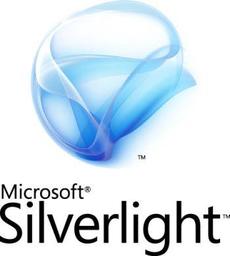
Pipelight consists out of two parts: A Linux library which is loaded into the browser and a Windows program started in Wine. The Windows program, called pluginloader.exe, simply simulates a browser and loads the Silverlight DLLs. When you open a page with a Silverlight application the library will send all commands from the browser through a pipe to the Windows process and act like a bridge between your browser and Silverlight. The used pipes do not have any big impact on the speed of the rendered video since all the video and audio data is not send through the pipe. Only the initialization parameters and (sometimes) the network traffic is send through them. As a user you will not notice anything from that “magic” and you can simply use Silverlight the same way as on Windows, like you can see on the following screenshot:
Install Pipelight on Ubuntu
Warning: Before you continue the installation you should note that:
The Pipelight PPA is available for Ubuntu 13.10, Ubuntu 13.04, Ubuntu 12.10, Ubuntu 12.04 and their derivatives. You can easily install it by running below commands in terminal (Ctrl+Alt+T) one by one:
sudo add-apt-repository ppa:pipelight/stable sudo apt-get update sudo apt-get install pipelight
You may need to accept a license agreement for a set of fonts during the installation. After it’s done just start your browser, type about:plugins in the addressbar and hit enter – if the installation went well you should now see Silverlight in your plugin list and everything is ready to run! Pipelight will install Silverlight on the first start of your browser, this may freeze the interface for several minutes (and you may just see a blank page without any progress). There might appear some dialog asking if Mono or Gecko should be installed during the Silverlight installation – you can safely choose no, as this is not necessary to get Pipelight running. After this step, the overall performance of your browser shouldn’t be affected any more.
More at Pipelight Homepage